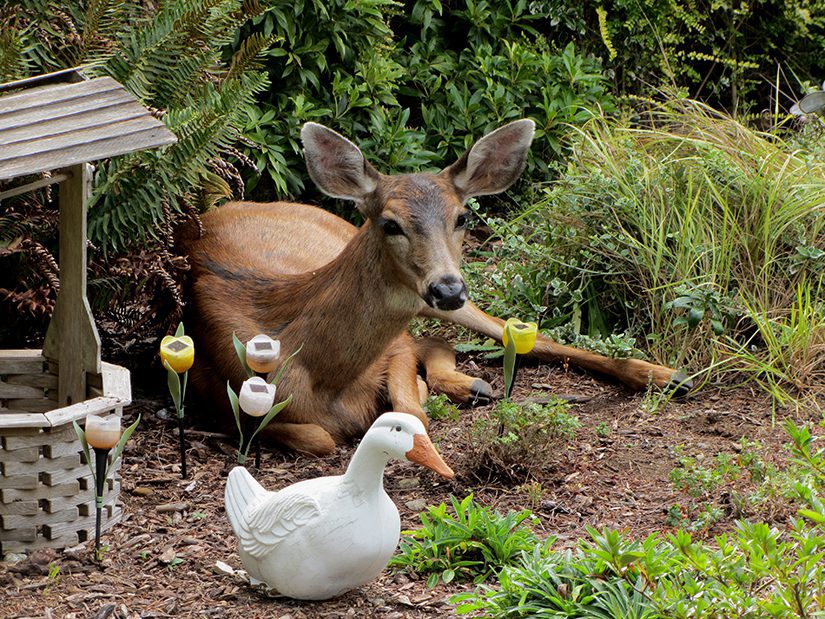Vancouver Island deer have a new risk this fall and winter. A news release (PDF) from the Ministry of Forests, Lands, Natural Resource Operations and Rural Development confirmed Adenovirus Hemorrhagic Disease (AHD) has been found in deer on Galiano and Mayne Islands and from the Maple Bay area of the Cowichan Valley on Vancouver Island.
AHD causes deer to suffer from difficulty breathing, foaming or drooling from the mouth, diarrhea (sometimes bloody) and seizures. More chronic symptoms include ulcers and abscesses in the mouth and throat. AHD is a highly contagious, lethal virus that is specific to cervids (mule deer, white-tailed deer, elk, moose, caribou), with members of the black-tailed deer family (including mule deer) being the most severely affected. AHD can be spread through direct contact between deer or their fluids and airborne transmission between deer may also occur. Sadly, there is no treatment or vaccine and the disease course is usually rapid and fatal, with young animals being more susceptible.

While there is no known human health risk from the virus, and no evidence that it can be transmitted to humans, hunters are being advised not to consume meat from animals found dead, obviously ill or acting abnormally prior to death. Research also indicates that AHD is not transmissible to livestock and pets.
To help prevent the spread of AHD and protect our local deer populations, the public is being asked not to feed wildlife – artificial feeding or water sources can increase aggregations of deer and in turn increase the chance for transmission from one individual to another. Additional control measures are also in place restricting transfers of live animals as well as disposing of dead deer by deep burial.
If you see a sick or distressed deer or have found a dead deer and need help to assess the situation, call our Animal Helpline at 1-855-622-7722. Observations of deer displaying acute or chronic symptoms of AHD can be reported directly to the Wildlife Health Laboratory at 1-250-751-7246.
Resources:
AHD in Deer – British Columbia Wildlife Health Fact Sheet (PDF)
For additional information on AHD and other wildlife diseases, visit gov.bc.ca/wildlifehealth.

